Archive for the ‘Photos’ Category
Sunday, December 20th, 2015
.
Earlier this evening while visiting the National Gallery of Art I saw how smartly the museum has integrated a few of the thousands of American works of art it acquired last year from the defunct Corcoran Gallery of Art (founded 1869, dissolved 2014).
For example, the pinnacle of the Corcoran’s collection of Hudson River School paintings, Niagara (1857) by Frederick Edwin Church (1826-1900), has been given pride of place in this room at the National Gallery of Art — where it has become the painting people invariably stop to admire:
.

.

.
(For a memento of how the painting looked when it used to hang at the Corcoran Gallery of Art, click here.)
A strength of the Corcoran museum, and an element that in my personal experience over the years turned that institution into an enlightening museum of American history as well as a fine museum of American art, was its collection of genre paintings — depictions of everyday life in our nation. Here are four gems belonging to that category, newly huddled in a corner where they are adding vitality to visitors’ experience of the National Gallery of Art.
.

.
The large canvas on the left is a picture I made certain to pay my respects to on dozens of visits (starting in the 1970s) to its former home. Titled A Pastoral Visit, it was painted in 1881 by Richard Norris Brooke (1847-1920). A powerful narrative executed with controlled sentimentality, the painting succeeds in a way that Norman Rockwell — our most beloved genre artist — all too often does not.
On the right side of the photo, the three other paintings that came to the NGA from the Corcoran share Brooke’s ambition and achievement. But these are scenes of more modest scale, with a tone unique to each artist. From left to right: The Tough Story–Scene in a Country Tavern (1837) by William Sidney Mount (1807-1868); Waiting for the Stage (1851) by Richard Caton Woodville (1825-1855); and Leisure and Labor (1858) by Frank Blackwell Mayer (1827-1899), an early political commentary conveyed via posture and dress (while beautifully composed and painted, too).
Now I look forward to the NGA hanging on its walls additional, equally bold works from the Corcoran trove. Two suggestions, if I may: The Longshoreman’s Noon (1879) by John George Brown, and Nearing the Issue at the Cockpit (1879) by Horace Bonham.
.
Tags:1837, 1857, 1858, 1879, 1881, A Pastoral Visit, Corcoran Gallery of Art, Corcoran Museum, Frank Blackwell Meyer, Frederick Edwin Church, Horace Bonham, John George Brown, Leisure and Labor, National Gallery of Art, Nearing the Issue at the Cockpit, Niagara, Norman Rockwell, Richard Caton Woodville, Richard Norris Brooke, The Longshoreman's Noon, The Tough Story - Scene in a Country Tavern, Waiting for the Stage, William Sidney Mount
Posted in Art, Culture, Photos, Politics | No Comments »
Saturday, December 12th, 2015
.
Just returned from an evening tour of the White House, now decorated for the Christmas season.
The entrance to the East Wing is guarded by stalwart Penguins — volunteers, one imagines, from Santa’s polar region.
.

.
Once inside, your journey down a hallway turns magical under a canopy of paper snowflakes:
.

.
When you reach the White House proper, a succession of public rooms greets you. One of these is the Green Room, which displays a spectrum of American art, including paintings by John Marin and Jacob Lawrence (for a daytime photo of the Green Room, click here):
.

.

.
Of the many Christmas trees on display, this one in the East Room is my candidate for best (neither the fellow in the lower left nor the one on the back wall expressed an opinion):
.

.
Tags:Christmas, Christmas tree, decorated, decorations, Evening, Jacob Lawrence, John Marin, Laura Bush, penguins, Snowflakes, Tour, White House
Posted in Architecture, Art, Photos | 2 Comments »
Saturday, November 21st, 2015
The so-called War on Christmas may be a fiction, but there is no doubting that contemporary Americans, even those you would expect to know better, are much less familiar with Christian iconography than in the past. I previously posted an idle observation on this subject, here.
A new example came to my attention this week, in an auction catalog posted online by an auction house in Connecticut. In the listings for the sale there is an item labeled, “TOMAS PENNING (1905-1982) CARVED CROSS.” It’s accompanied by several photos and the following description:
“Carved slate, marked NR above figure, Dimensions: H 36″ x W 22.5″ Condition: good”
.

.
Here’s one of the photos showing the segment above the figure:

.
One can suppose the cataloguer mentioned that two letters, NR, appear above the figure for some reason beyond mere diligence (it’s standard cataloguing practice to indicate for the benefit of remote bidders who can’t examine the object in person, all of the marks, initials, dates and other inscriptions found on it). But why mention just the N and the R? Did the cataloguer not see within the rectangle the “I” before and the “I” after the letters NR? Was he or she not familiar with the four letter inscription, INRI, that appears in representations of the crucified Jesus? Was there no one around who knew the significance of the acronym INRI? That it comes from the Latin phrase ‘Iesus Nazarenus Rex Iudaeorum’ — ‘Jesus of Nazareth, King of the Jews’? That according to the crucifixion story in the Bible (John 19:19), this was a notice Pontius Pilate posted over the head of Jesus as he lay dying on the cross? That this imagery has been a part of our cultural conversation spanning centuries?
Two unforgettable examples:
.

Andrea Mantegna (1431-1506), The Crucifixion, 1459 (detail)
.

Emile Nolde (1867-1956), Crucifixion, 1912
.
Tags:Andrea Mantegna, Christ, Crucifixion, Emile Nolde, Iesus Nazarenus Rex Iudaeorum, INRI, Jesus, Jesus of Nazareth, John 19:19, King of the Jews, Mantegna, Nolde, Tomas Penning, visual literacy
Posted in Art, Culture, Photos | No Comments »
Sunday, October 4th, 2015
Being drawn to people who look like ourselves is a common phenomenon firmly based in science. A number of recent articles provide an explanation, here, here, and here. When finding another person attractive, your standards will relate to aspects of your own appearance that you know best — your face, the shape of your head and body, your coloring, etc.
Does this “like attracted to like” phenomenon apply beyond our evaluation of other people?
I think so.
It’s often remarked how the pets people choose, especially dogs, look like their owners. From anecdotal evidence, and my practice as an armchair psychologist, I believe a strong case can be made that this gravitational pull extends even further — to inanimate things that catch our eye in the material world. I’ve posted about this subject once before, here. Yesterday brought to my sight another example.
At Costco there was an indoor display of pumpkins. It was huge, while maybe not yooge. When autumn arrives, who among us — whether a person or a cartoon character — can resist the spell of ripe pumpkins? The scene was worthy of being photographed and so I snapped several pictures of it.
Here’s one:
.
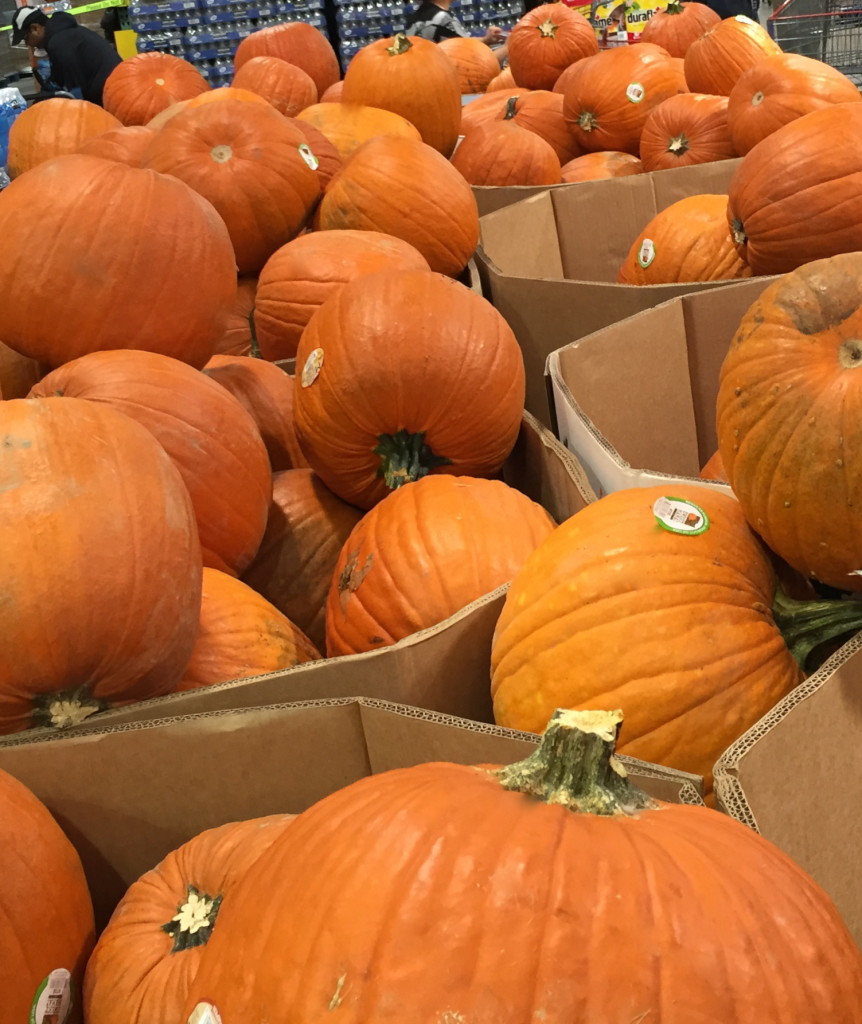
.
Later at home, while looking through the full set of photos, one picture jumped out. It includes a woman who, amid the crowd attracted to this harvest of pumpkins, I remember reacted to the display with special delight:
.
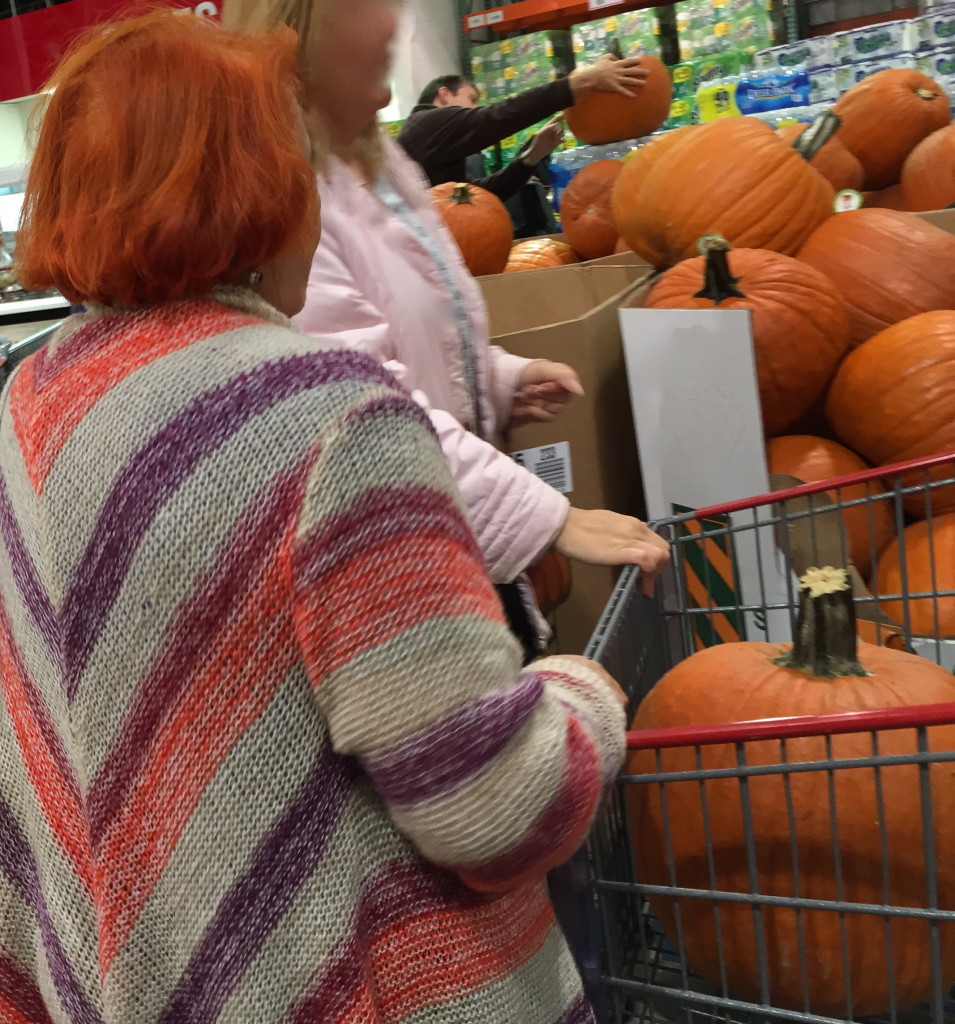
.
I rest my case.
.
Tags:Costco, hair, like attracted to like, orange, psychology, Psychology Today, pumpkin, pumpkins
Posted in Dogs, Humor, Photos | No Comments »
Monday, September 21st, 2015
.
In New York at the Whitney Museum this afternoon.
.
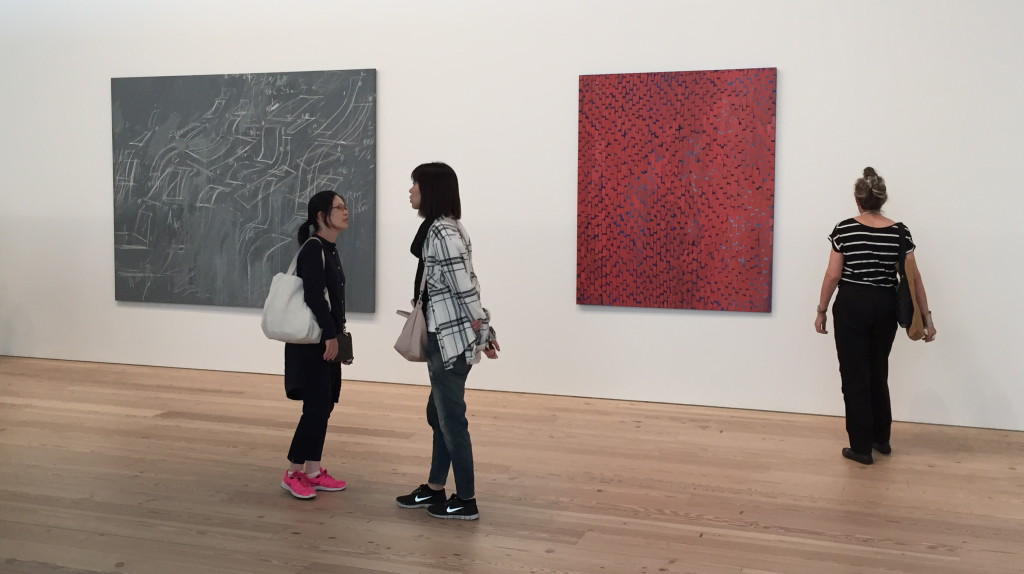
.
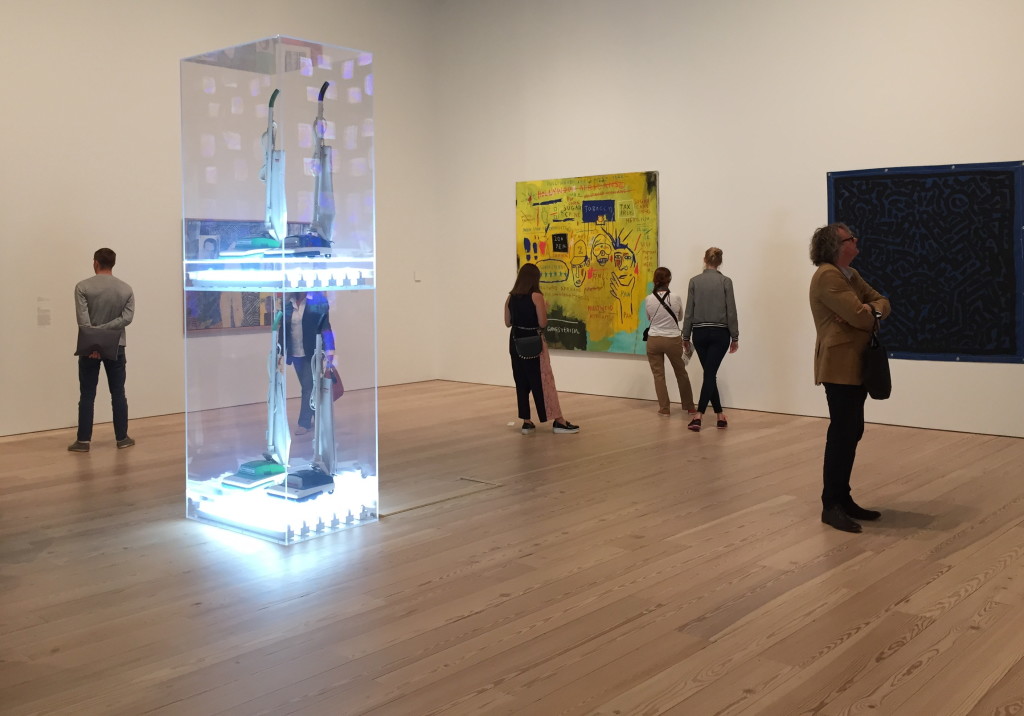
.
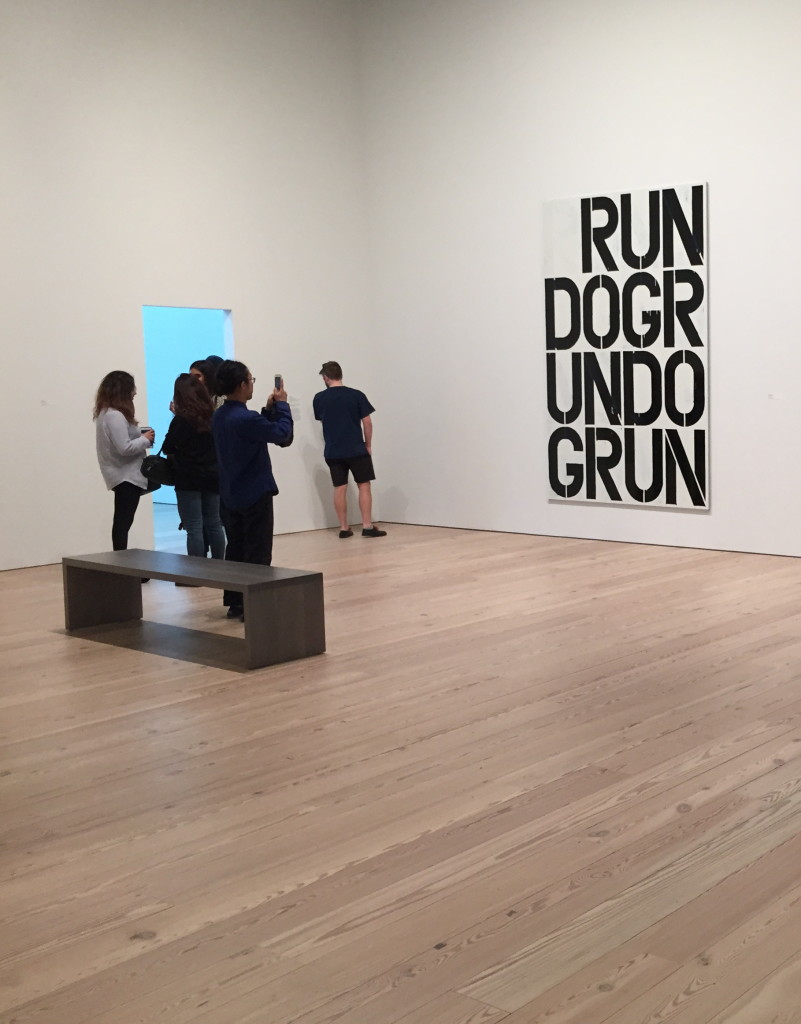
.
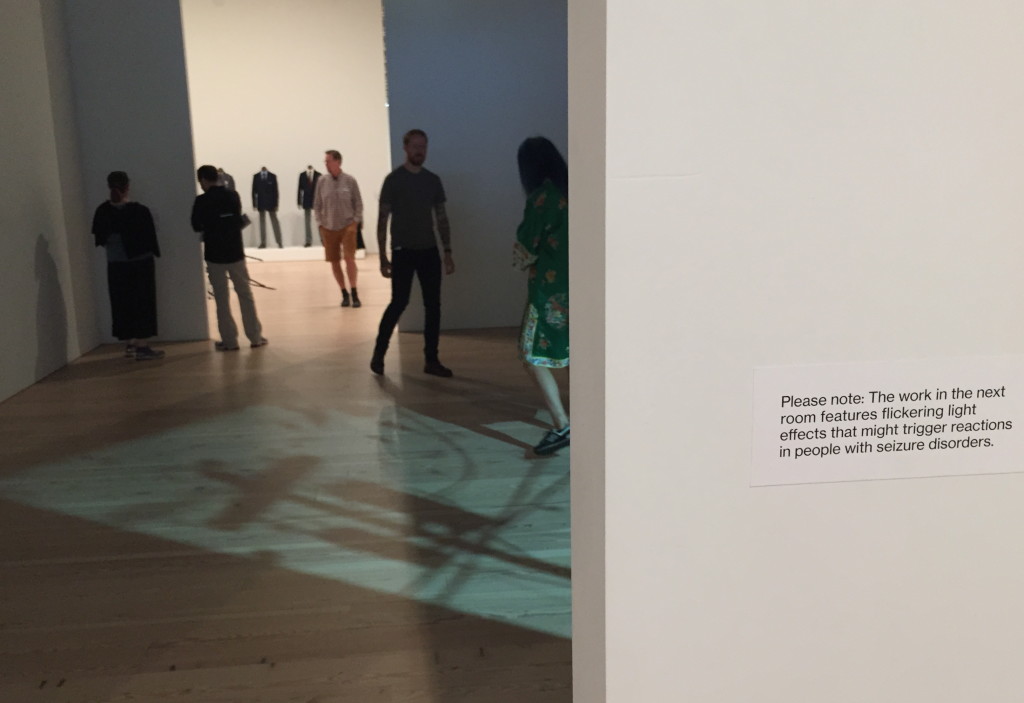
.
Tags:Alma Thomas, Christopher Wool, Cy Twombly, Jasper Johns, Jean-Michel Basquiat, Jeff Koons, Keith Haring
Posted in Art, Culture, Photos | No Comments »
Sunday, July 26th, 2015
.
Washington, DC, July 2, 2015, 2:06:45pm.
.
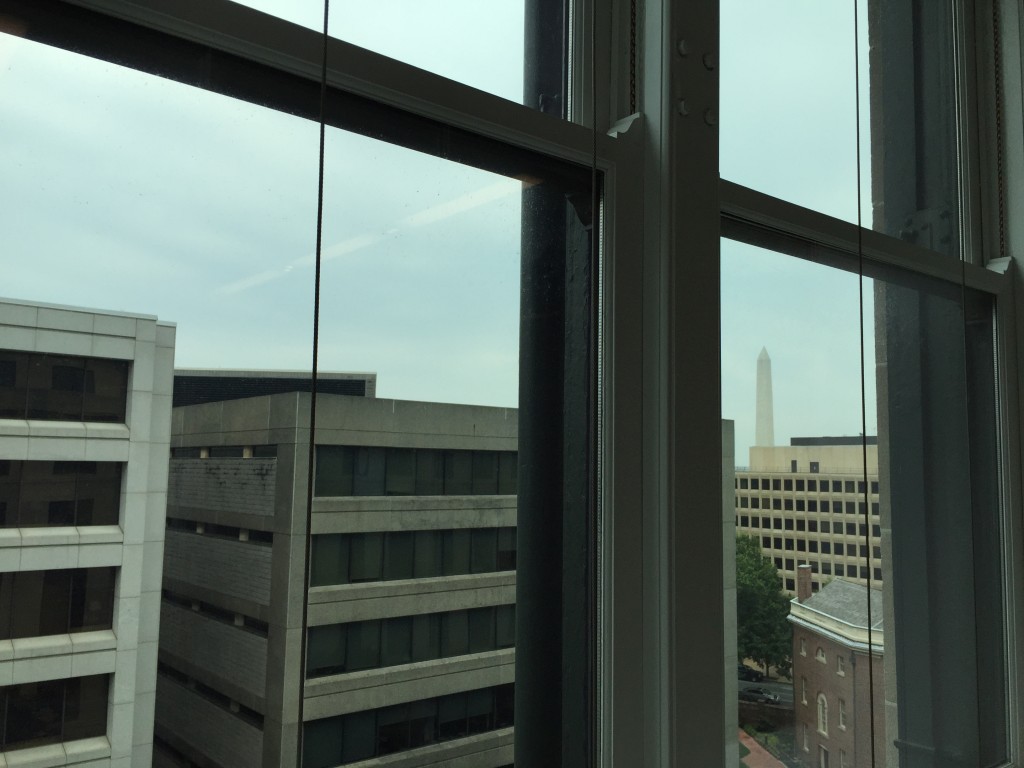
.
Tags:DC, Octagon, Octagon House, Octagon Museum, The Octagon House, Washington, Washington DC, Washington Monument
Posted in Architecture, Photos | No Comments »
Saturday, June 27th, 2015
These are photographs I took this month of the interiors of two notable buildings in Washington, DC — the grand halls and ceilings of the Library of Congress’s Jefferson Building (Great Hall, 1897) and the U.S. Institute of Peace Headquarters (Jacqueline and Marc Leland Atrium, 2011).
.
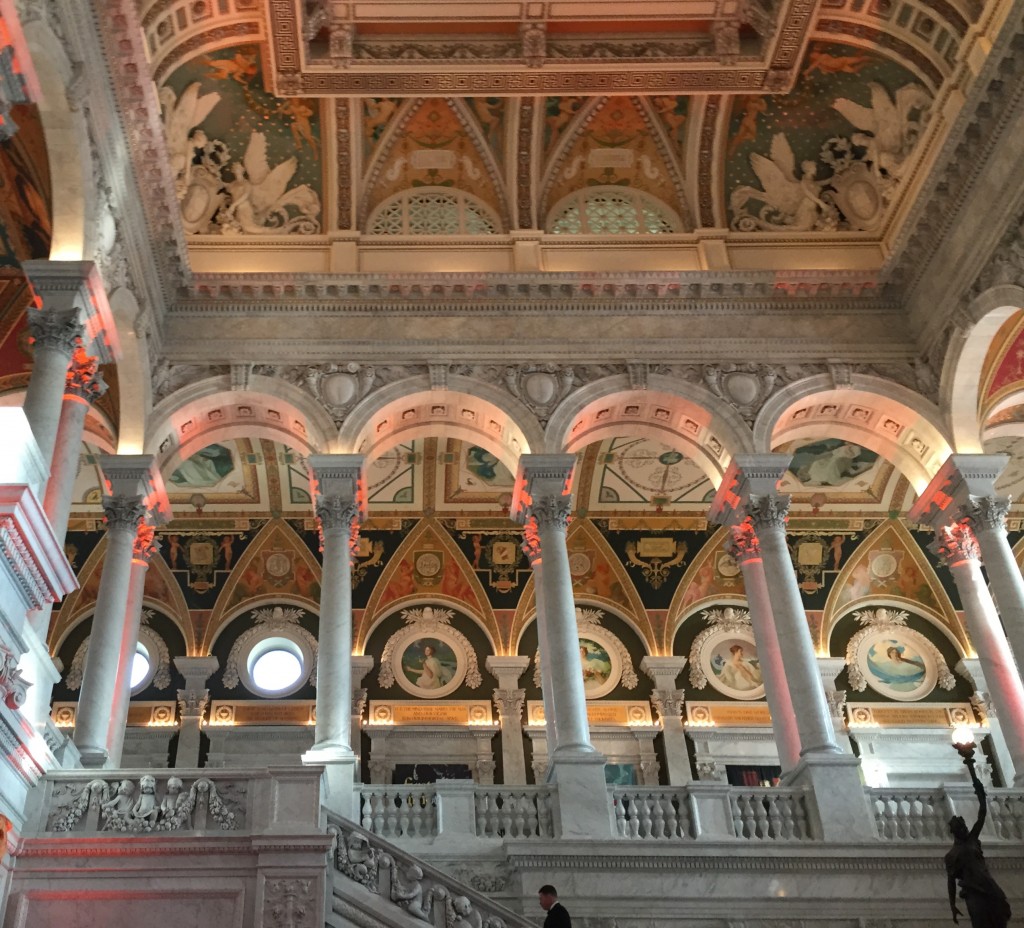
View from the floor of the Great Hall, Library of Congress, Jefferson Building
.
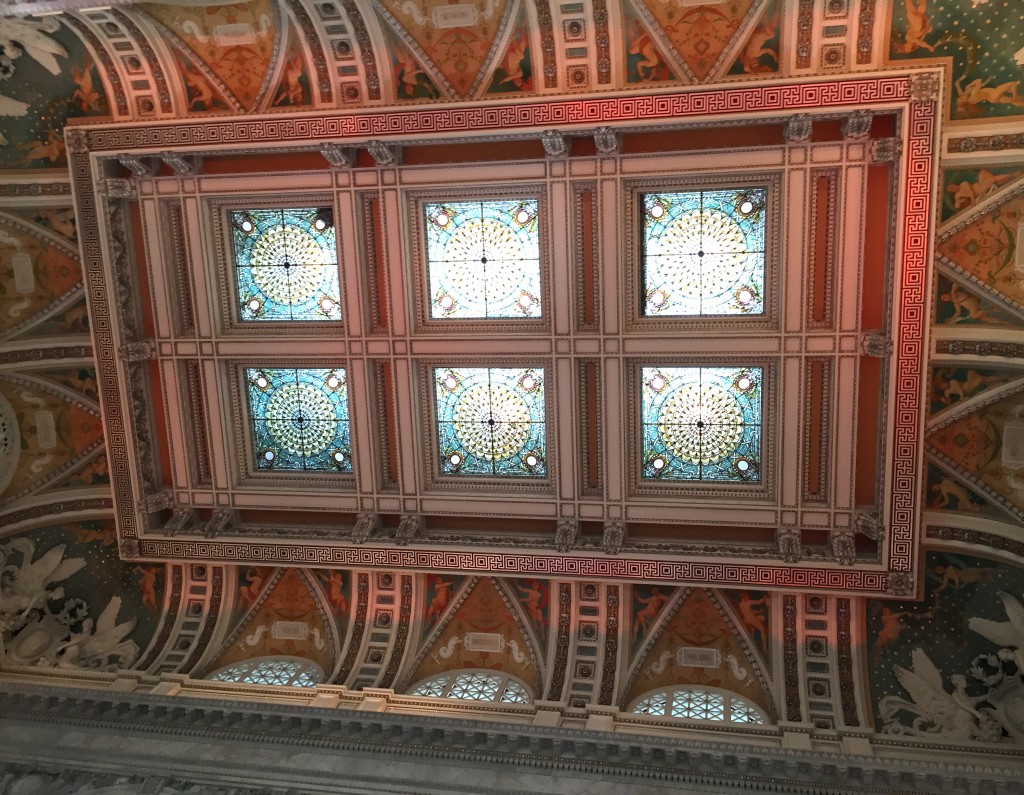
Six large skylights above the Great Hall, Library of Congress, Jefferson Building
.
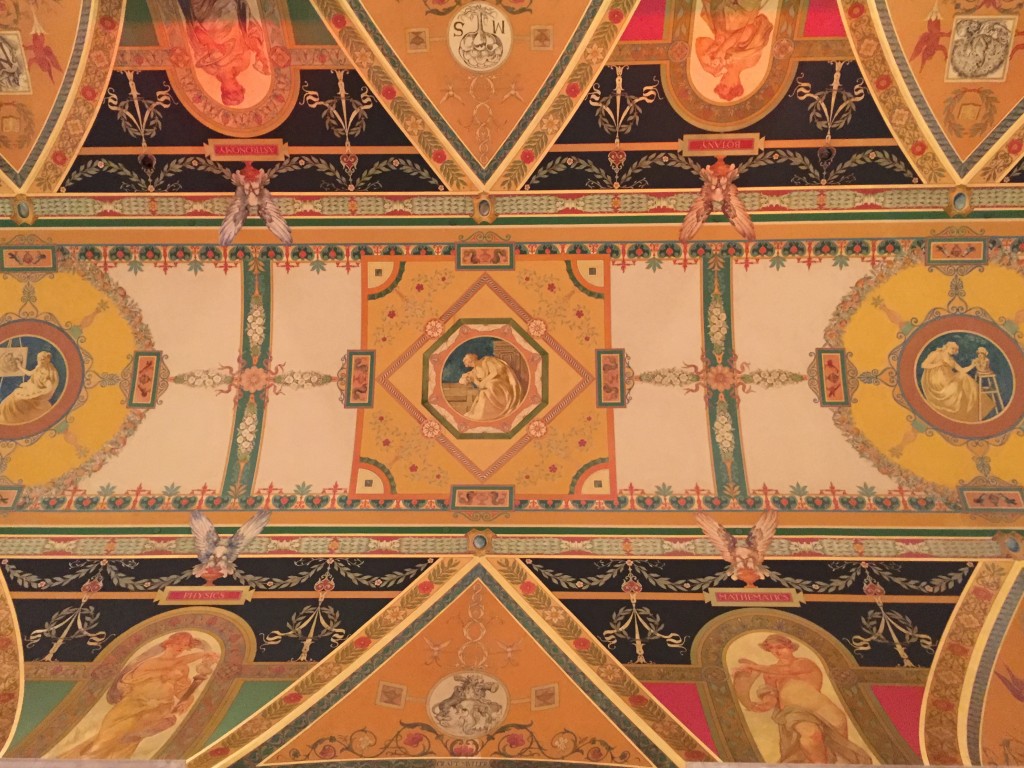
Ceiling decoration of the Great Hall, Library of Congress, Jefferson Building
.
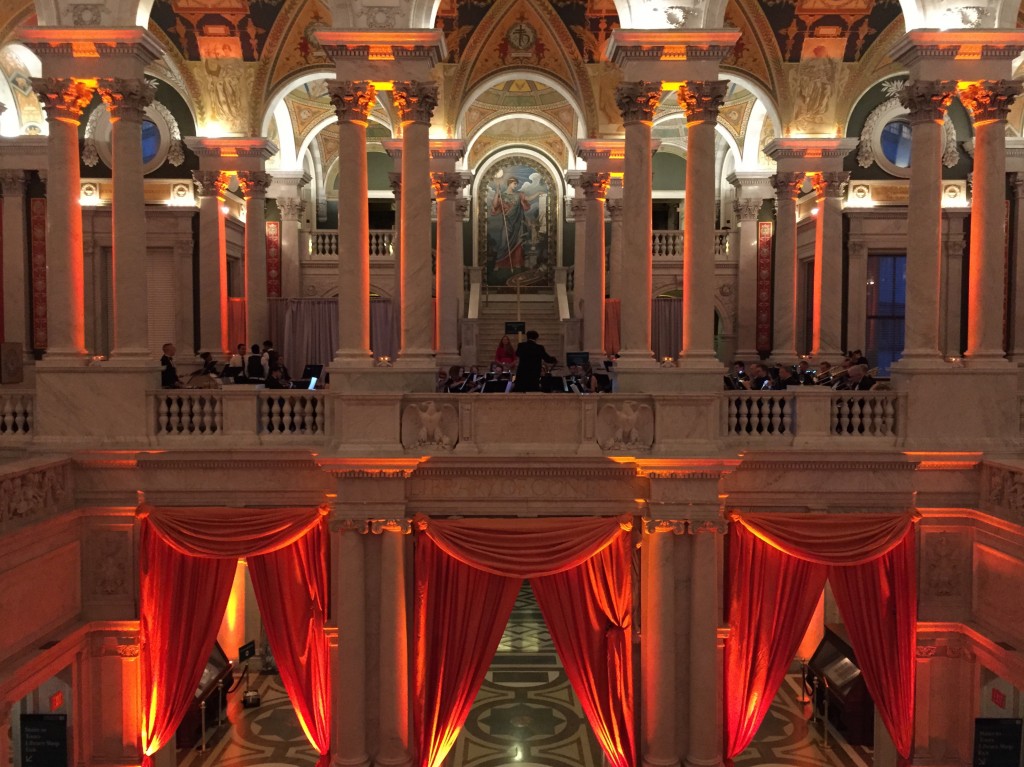
View from the Great Hall’s second floor west corridor, June 15, 2015
.
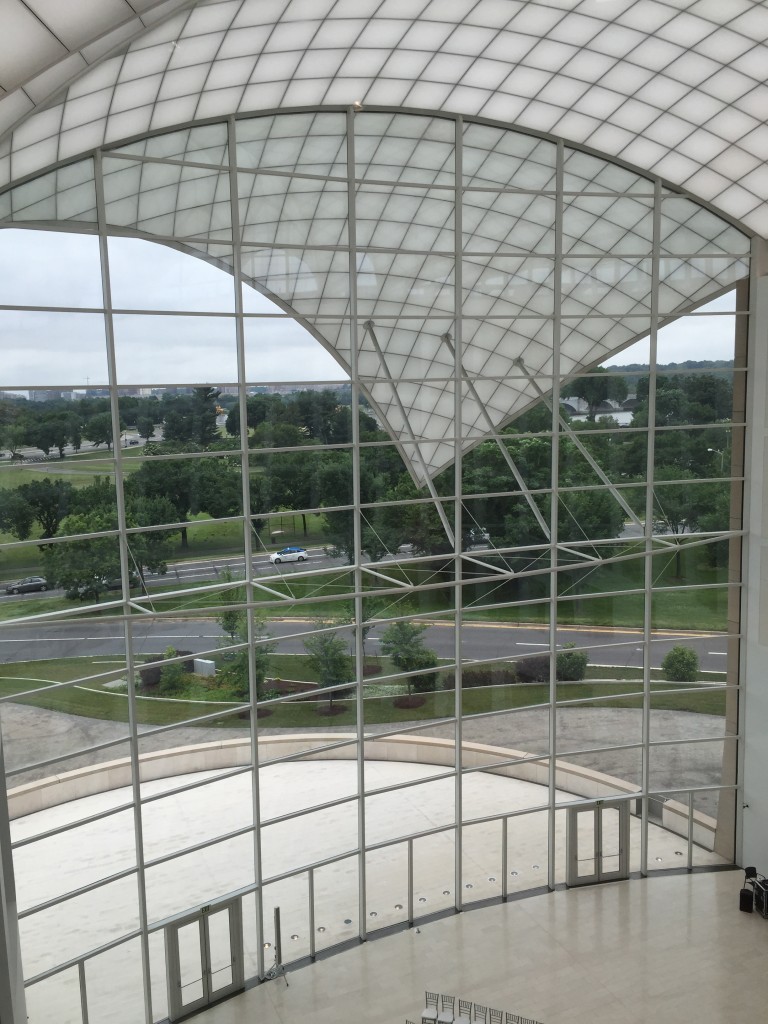
U.S. Institute of Peace, Leland Atrium, which one critic lambasted for its “lazy glass wing dangling rather drunkenly over the main atrium.”)
.
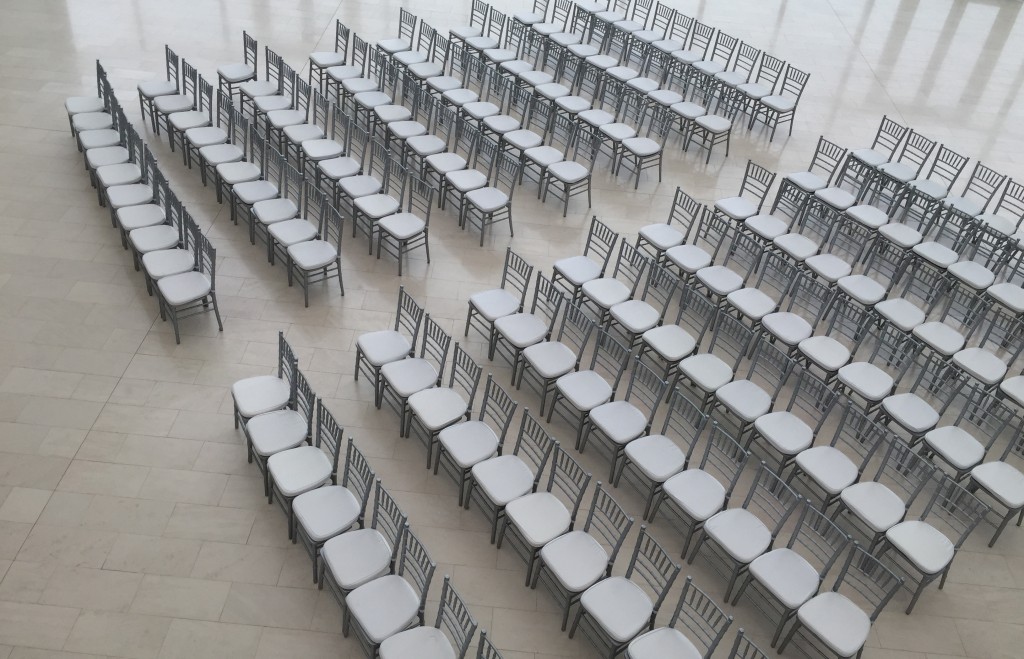
The space, regimented with chairs, is chilling. It reminded me of the assembly hall filled with gray seated prisoners featured in Apple Computer’s notorious “1984” TV ad.
.
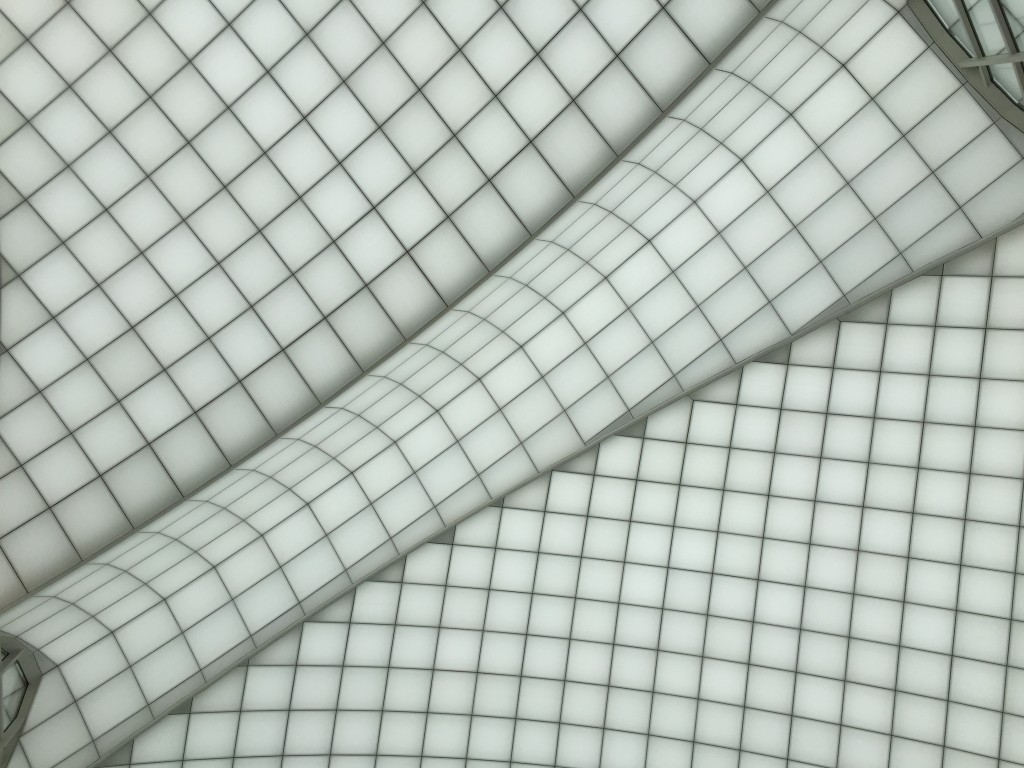
Yet there’s no denying the ceiling is intriguing optically and as a feat of engineering.
.
Tags:Apple 1984 TV Commercial, Apple Super Bowl 1984, Atrium, fresco, Great Hall, Institute of Peace, Jacqueline and Marc Leland, Jefferson Building, Library of Congress, Moshe Safdie, skylight, U.S. Institute of Peace
Posted in Architecture, Art, Photos | No Comments »
Saturday, May 30th, 2015
.
Photos taken this afternoon in Calvert County, Maryland. Left click on the photo to enlarge it.
.
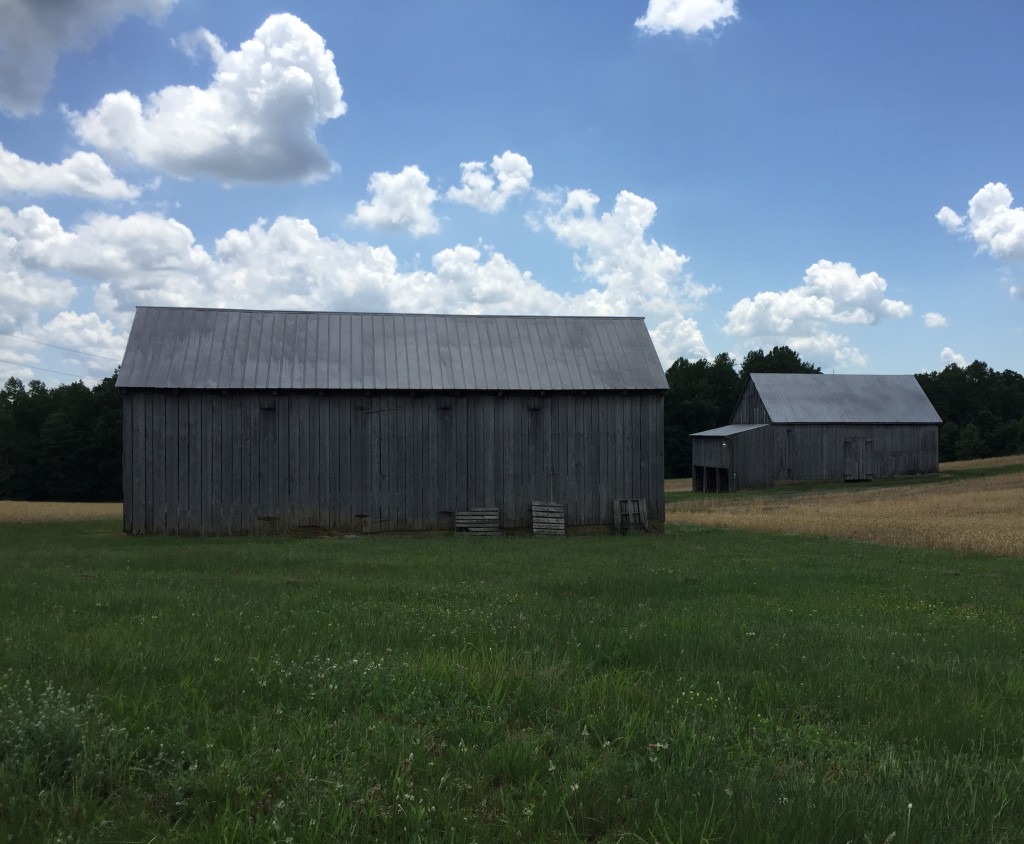
Two barns waiting for the sun to emerge from behind the clouds
.
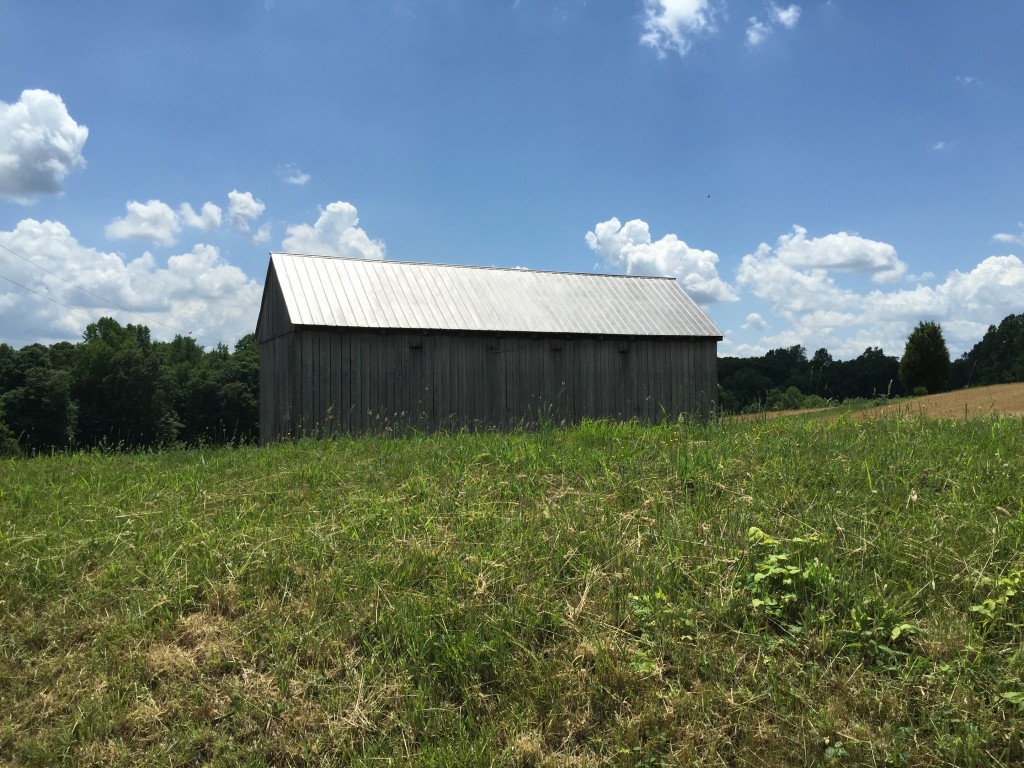
Here comes the sun
.
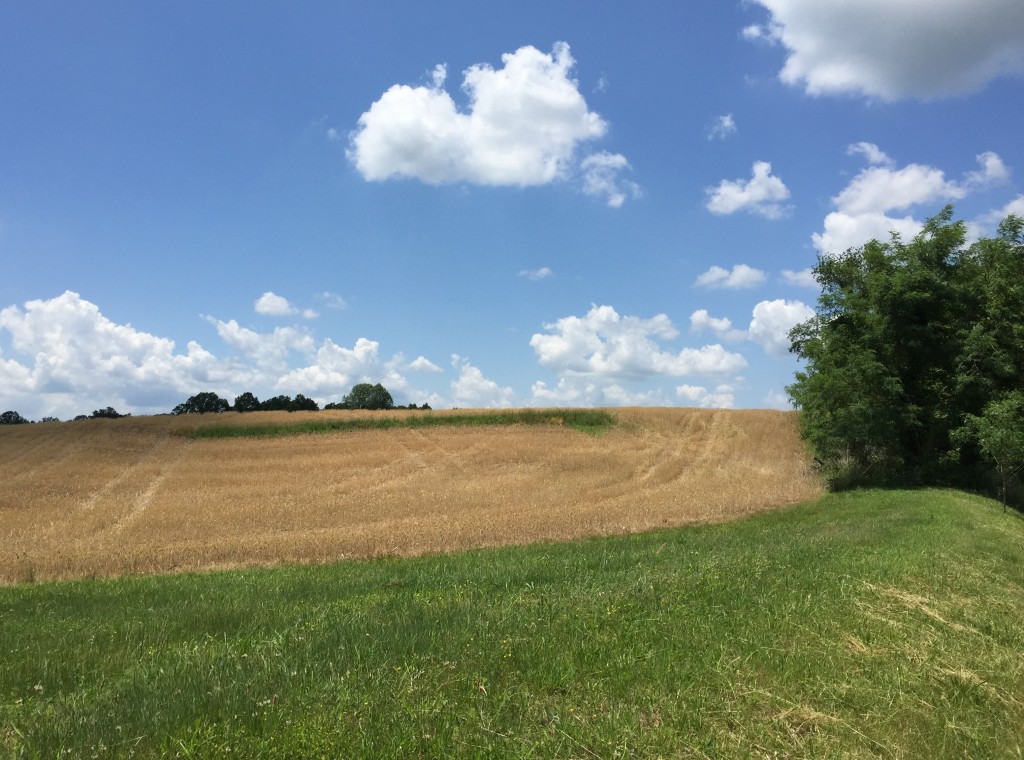
The field
.
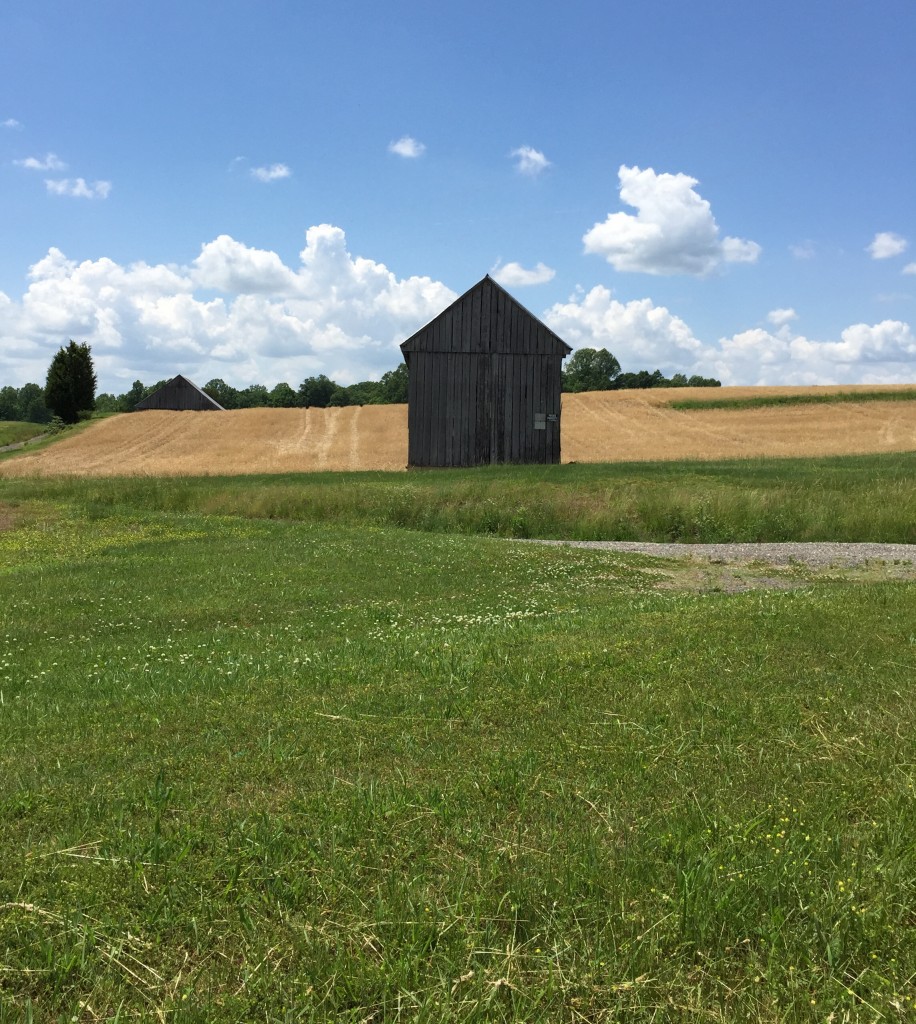
The side of the barn has the shape of home
.
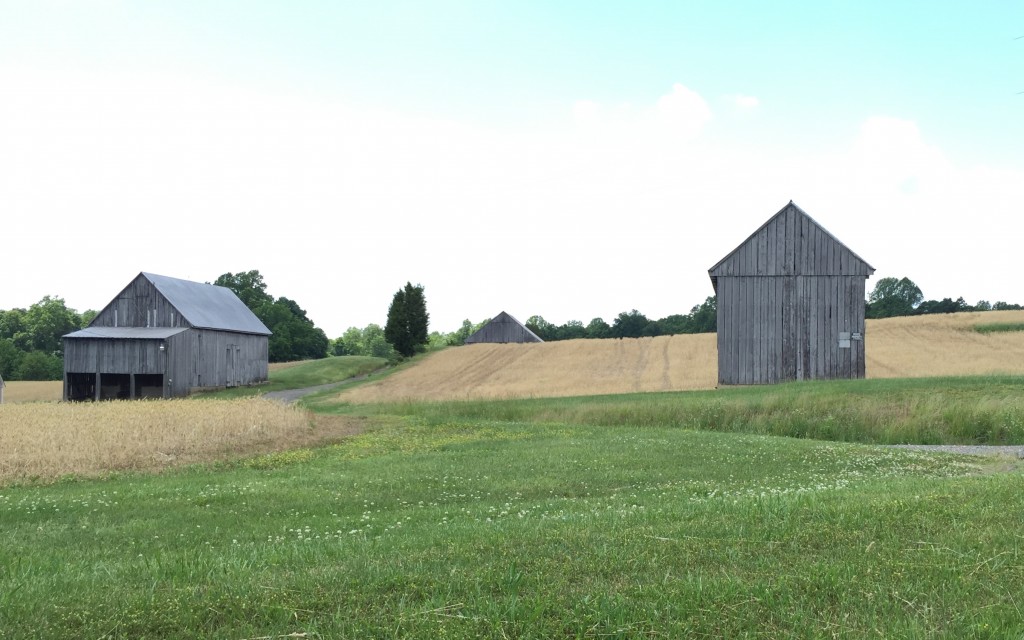
Three barns (one peeking out over the crest of the hill)
.
Tags:barn, barns, Calvert County, home, icon, Maryland, MD, symbol, tobacco, tobacco barns
Posted in Photos | No Comments »
Thursday, April 30th, 2015
Stencil graffiti spotted at 17th & R Sts., NW, Washington DC, April 30, 2015, 5:51 PM.
.
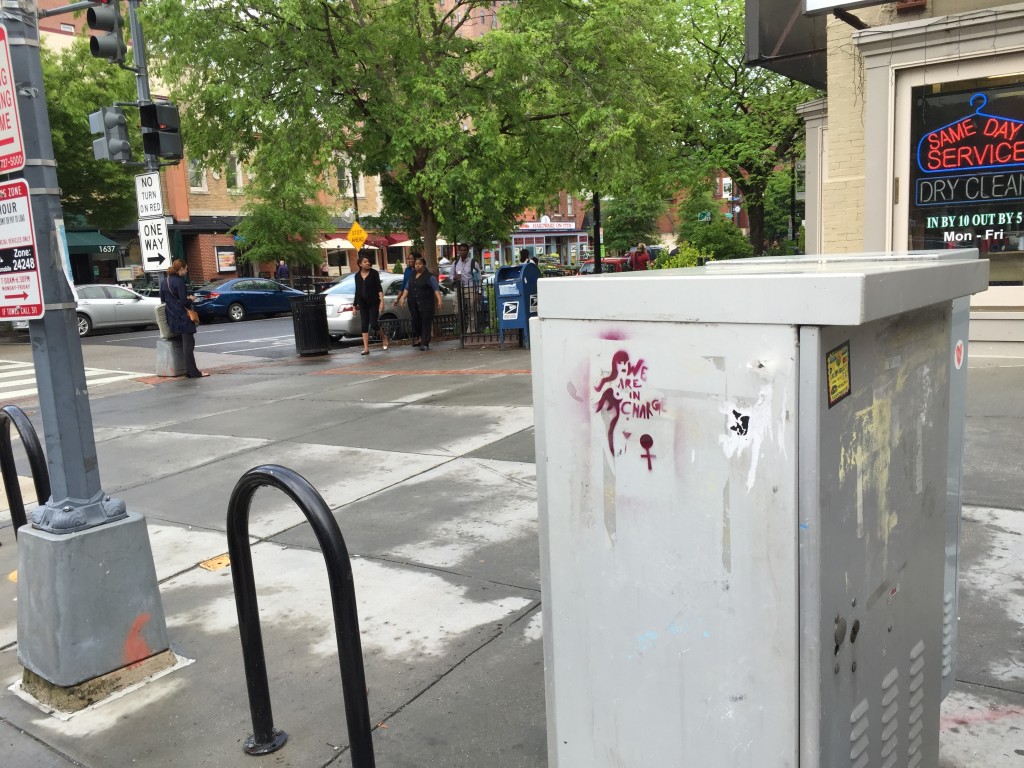
.
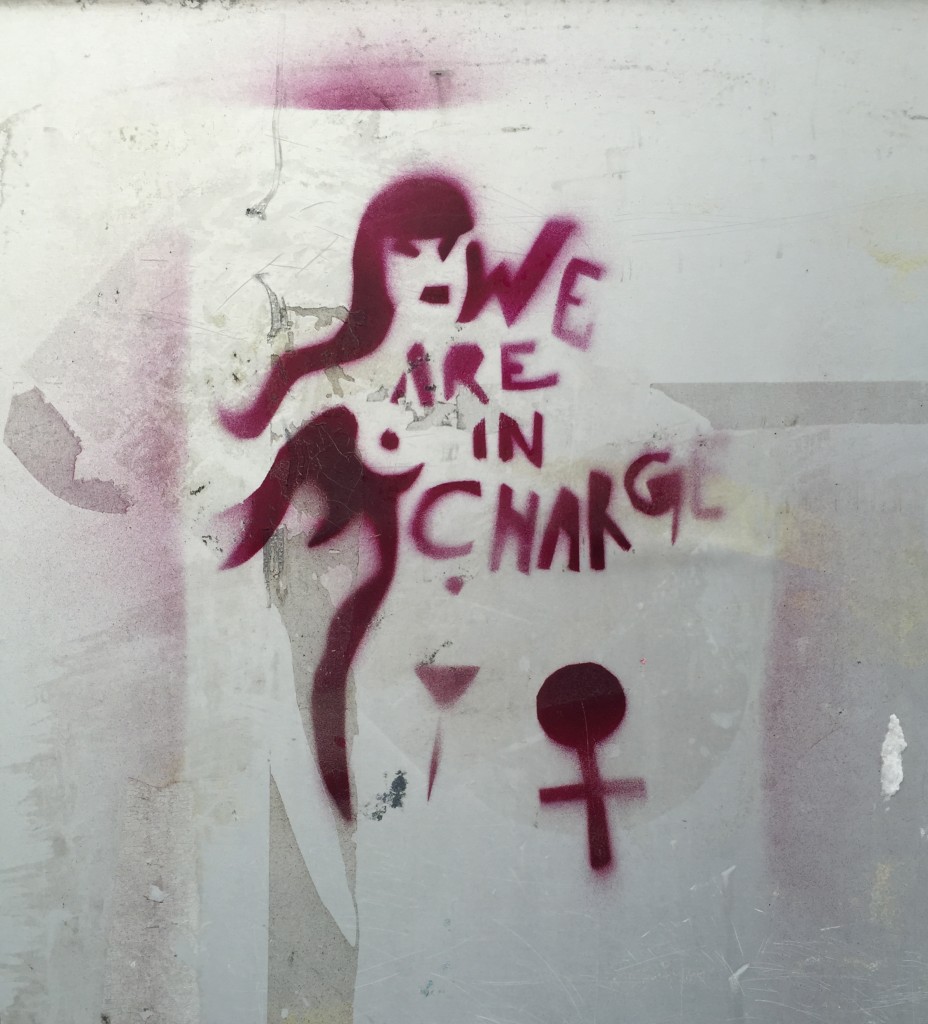
.
Note: In a search of Google Images I could find only one other example of this particular stencil graffiti, here: https://www.flickr.com/photos/alexiares/2449433511/. The uploader of that photo didn’t indicate its location.
Tags:Feminist graffiti, graffiti, Spray paint, stencil, Stencil graffiti, Washington DC, We are in charge
Posted in Art, Culture, Photos, Politics | 2 Comments »
Saturday, April 11th, 2015
A gray afternoon in Manhattan on Wednesday.
.
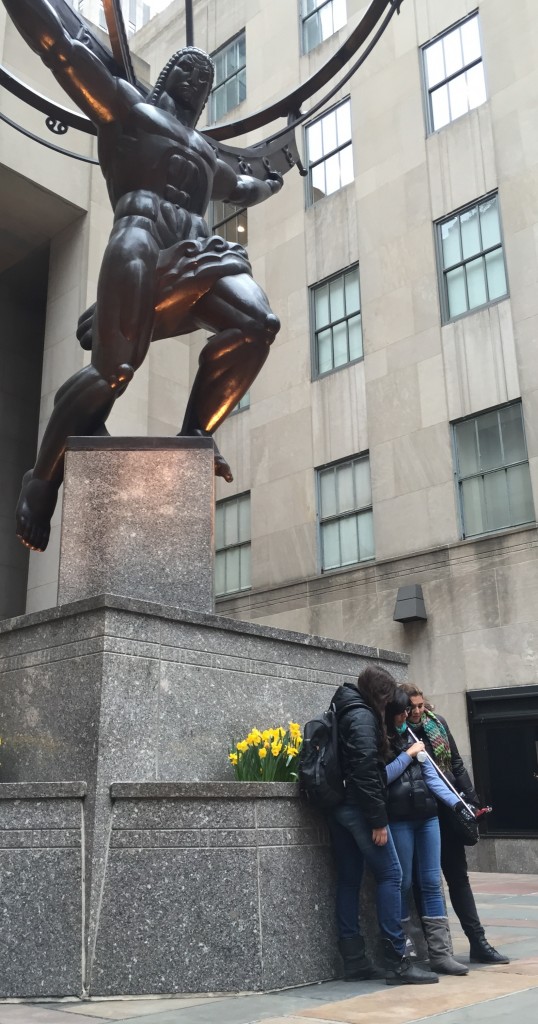
Atlas at Rockefeller Center, 04/08/2015 at 4:00:13 PM
.
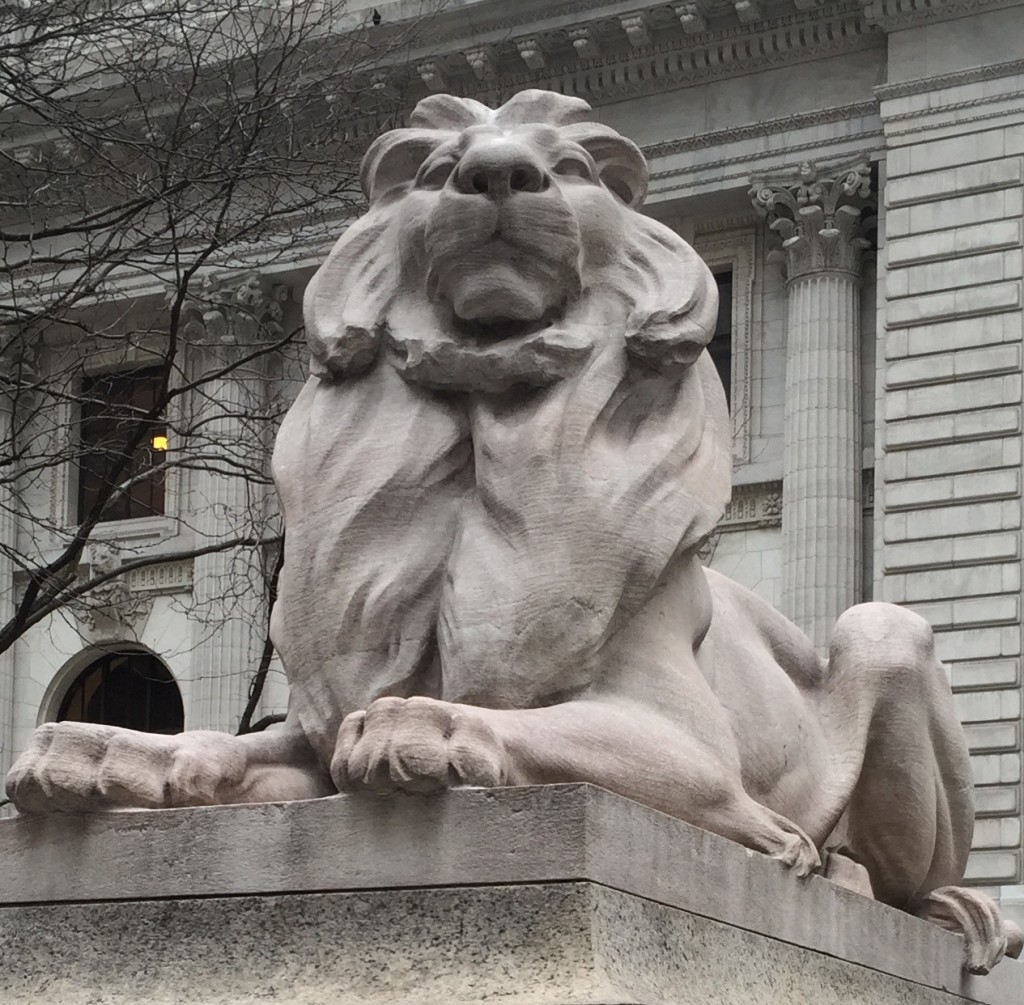
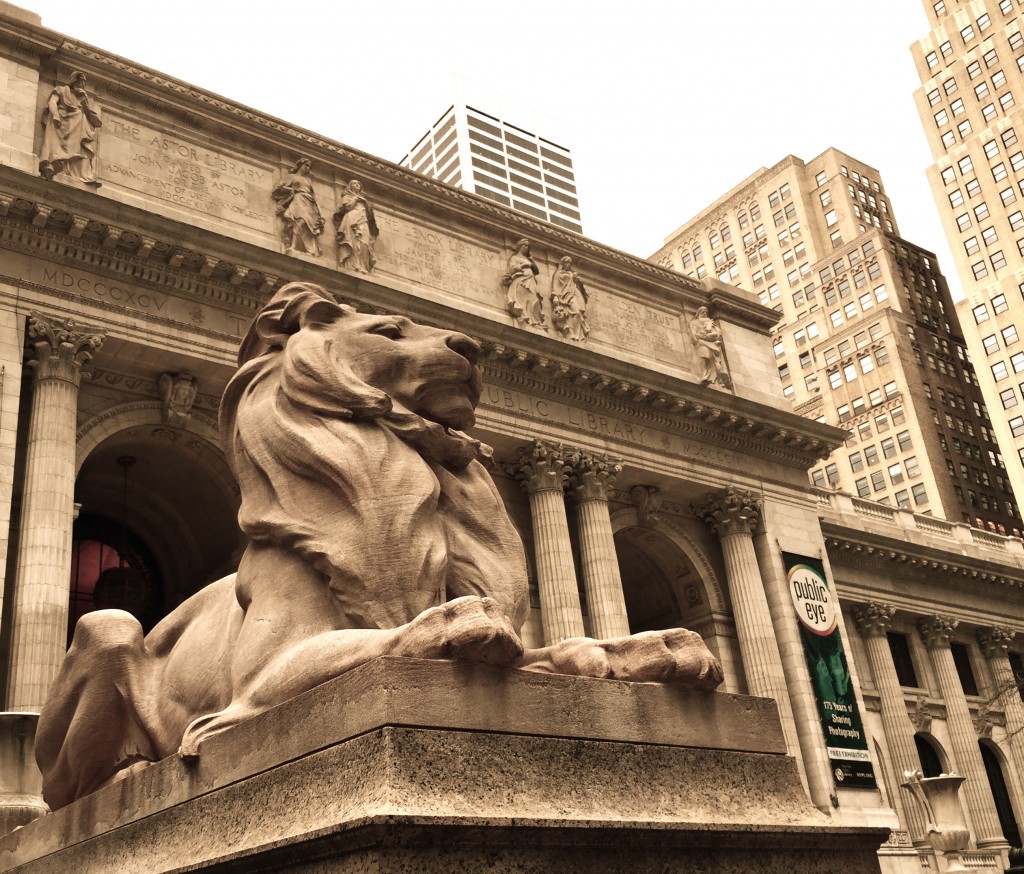
Patience the Lion at New York Public Library, 04-08-2015 (first at 4:12:00 PM; second at 4:12:12 PM)
.
Tags:Atlas, Fifth Avenue, Lion, Manhattan, New York City, New York Public Library, NYPL, Patience, Rockefeller Center, Selfies
Posted in Art, Culture, Photos, Travel | No Comments »



































